Are you a concerned dog owner wondering about the proper healing process after your furry friend’s neutering procedure? Look no further! Introducing the informative guide, “How Long Should A Dog Not Lick After Being Neutered.” This comprehensive resource explores the essential timeframe during which your dog should refrain from licking the surgical site post-neutering, ensuring a smooth and successful recovery. With expert insights and practical tips, this guide is a must-have for every dog owner seeking to provide the best care for their loyal companion.
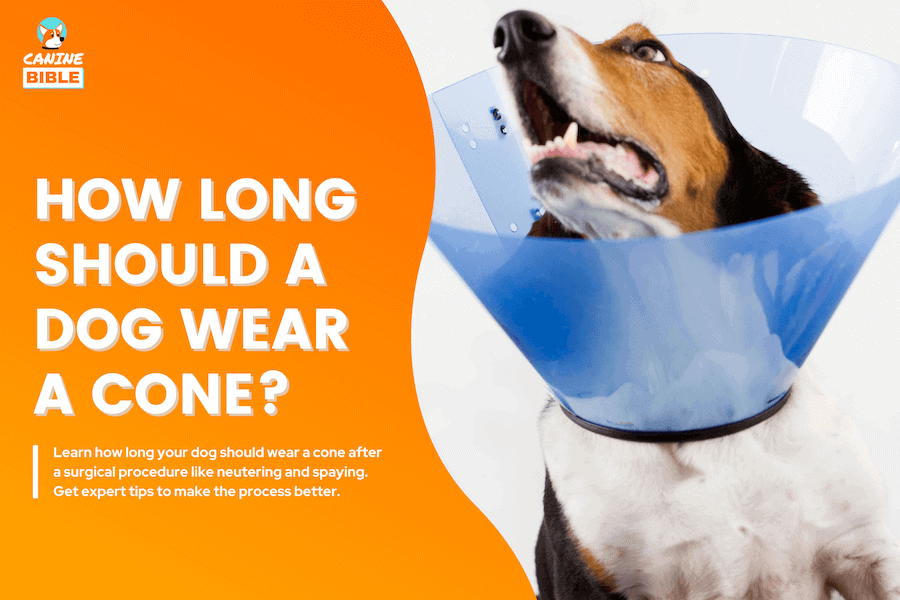
Understanding Dog Neutering
Neutering is a surgical procedure that involves the removal of a male dog’s testicles, rendering them sterile and unable to reproduce. It is a common approach to controlling pet overpopulation and has several benefits for both the dog and its owner.
What is neutering?
Neutering, also known as castration, is the surgical removal of the testicles in male dogs. It is a straightforward procedure that can be performed by a veterinarian under general anesthesia. The surgery typically lasts for about 30 minutes, and the dog is usually able to go home the same day.
Why is it important?
There are several reasons why neutering your dog is important. Firstly, it helps curb the problem of pet overpopulation. Countless dogs end up in shelters or on the streets, and by neutering your dog, you are preventing the birth of unplanned puppies. Additionally, neutering has health benefits for your dog. It reduces the risk of testicular cancer and various other reproductive diseases. Neutering can also address behavioral issues such as aggression and roaming tendencies.
Ideal age for neutering a dog
The ideal age for neutering a dog can vary depending on the breed and the veterinarian’s recommendations. Generally, it is recommended to neuter a male dog between the ages of six and nine months. At this stage, the dog’s testicles have descended, and the surgery can be safely performed. However, it is essential to consult with your veterinarian to determine the optimal timing for your specific dog.
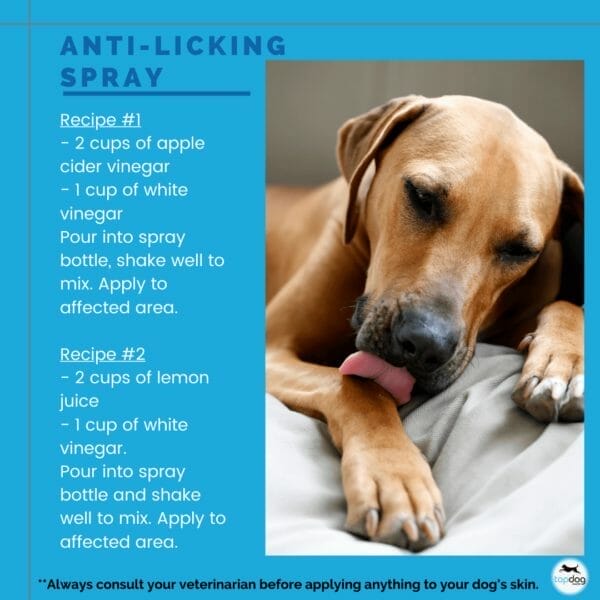
Procedure of Dog Neutering
Preparing your dog for neutering
Before the procedure, it is essential to prepare your dog for neutering. Ensure your dog has fasted for at least 12 hours to minimize the risk of anesthesia-related complications. Follow any instructions provided by your veterinarian regarding withholding food and water. Additionally, keep your dog clean and well-groomed before the surgery to minimize the risk of infections.
During the neutering process
During the neutering process, your dog will be under general anesthesia to ensure they are comfortable and pain-free. The veterinarian will make a small incision in the scrotum to remove the testicles. The incision is then closed with stitches or surgical glue. Your dog’s vitals will be closely monitored throughout the procedure to ensure their safety and well-being.
Post-surgery care and observation
After the surgery, it is crucial to provide your dog with a safe and quiet recovery space. Keep them warm and comfortable, and monitor them closely for any signs of complications or distress. Follow any post-surgery care instructions provided by your veterinarian, such as administering pain medication and preventing excessive licking of the surgical site.
What to Expect After Dog Neutering
Physical changes to expect
After neutering, you may notice some physical changes in your dog. The scrotum will appear deflated, as the testicles have been removed. There may also be a small incision site, which will gradually heal and fade over time. Some swelling and bruising may occur, but these should subside within a few days. It is essential to keep an eye out for any unusual discharge or signs of infection and consult your veterinarian if you have any concerns.
Behavioral changes to expect
Neutering can bring about several behavioral changes in your dog. It can help reduce or eliminate aggressive behavior, including mounting and territorial marking. Neutered dogs are often less prone to roaming, which can help prevent accidents or conflicts with other animals. However, it is important to note that neutering is not a magical fix for all behavioral issues, and additional training and socialization may still be required.
Timeframe for recovery
The recovery timeframe can vary from dog to dog, but most dogs will recover within a week or two. It is crucial to limit your dog’s physical activity during this time to prevent any strain on the incision site. Your veterinarian will provide specific instructions on when it is safe for your dog to resume regular exercise and activities. Be patient and give your dog the time they need to heal fully.
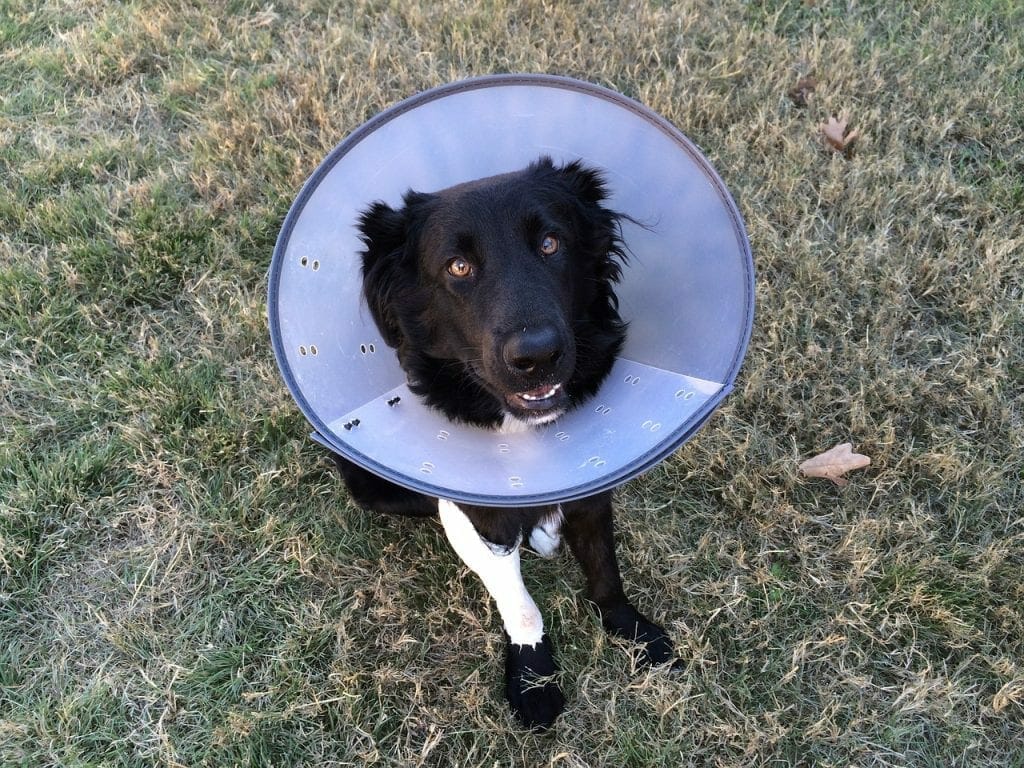
Neutering After-Care Issues
Common issues encountered after neutering
While neutering is generally a safe procedure, there can be some common issues that dog owners may encounter. Swelling and bruising at the incision site, mild discomfort or pain, and temporary loss of appetite are common occurrences. However, if these symptoms persist or worsen, it is important to consult with your veterinarian.
Preventing infection and complications
To prevent infection and complications, it is crucial to keep the incision site clean and dry. Avoid bathing your dog for at least ten days after the surgery, as moisture can increase the risk of infection. Additionally, prevent your dog from licking or biting at the incision site, as this can introduce bacteria and delay the healing process.
Recognizing severe complications
While severe complications are rare, it is important to be aware of the signs and seek immediate veterinary assistance if they occur. Signs of severe complications may include excessive bleeding, extreme pain or discomfort, signs of infection (such as pus or foul odor), or refusal to eat or drink. Trust your instincts as a dog owner and consult with your veterinarian if you have any concerns.
Licking After Neutering: What’s the Issue?
Why do dogs lick the surgical area?
Licking is a natural instinct for dogs and can serve as a coping mechanism or a way to clean themselves. However, excessive licking of the surgical area after neutering can lead to complications, such as delayed healing and increased risk of infection. It is essential to prevent your dog from licking the incision site to promote a smooth recovery.
What harm can licking cause?
When a dog licks excessively, it can irritate the incision site and introduce bacteria, leading to infection. Licking can also disrupt the sutures or cause the incision to reopen, prolonging the healing process. Additionally, dogs may ingest the hair or debris around the incision, leading to gastrointestinal issues.
Recognizing excessive licking
It is normal for dogs to lick their incision sites occasionally, but excessive licking is cause for concern. If you notice your dog constantly obsessing over the surgical area, spending prolonged periods of time licking, or exhibiting signs of discomfort such as redness or swelling, it is important to take action to prevent further complications.
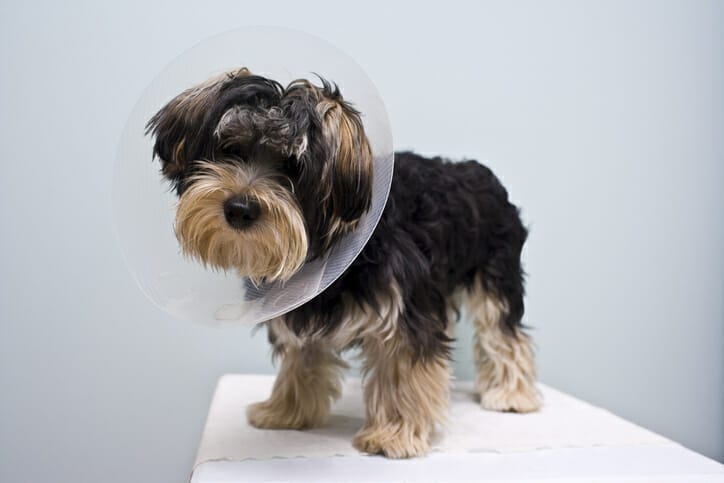
Preventing Licking After Neutering
Methods to prevent licking
There are several methods you can employ to prevent your dog from licking the surgical area after neutering. One common approach is using an Elizabethan collar (also known as a cone or “the cone of shame”) to prevent access to the incision site. Other alternatives include using specialized recovery suits or shirts that cover the surgical area, or applying bitter-tasting deterrent sprays or creams to discourage licking.
Recommended products to help prevent licking
When it comes to preventing licking after neutering, there are various products available on the market. Elizabethan collars are widely used and can be purchased at pet stores or through your veterinarian. Recovery suits or shirts designed specifically for post-surgery dogs are another effective option. Additionally, there are bitter-tasting sprays and creams that can be applied to the incision site to discourage licking.
When to consult with a vet
If you have tried various methods to prevent licking, but your dog continues to obsessively lick the surgical area or shows signs of infection or discomfort, it is crucial to consult with your veterinarian. They can assess the situation, provide additional guidance, and determine if any underlying issues need to be addressed.
Timeframe for Preventing Licking
How long should a dog not lick after being neutered?
The timeframe for preventing licking after neutering can vary depending on several factors, including the individual dog’s healing process and the veterinarian’s recommendations. In general, it is advisable to prevent licking for at least ten to fourteen days post-surgery. However, it is important to follow your veterinarian’s specific instructions, as they may provide more accurate guidance based on your dog’s condition.
Factors that affect the timeframe
Several factors can influence the timeframe for preventing licking after neutering. The size and breed of your dog, the healing progress of the incision site, and your dog’s temperament and behavior can all impact how long you need to keep them from licking. Additionally, it is essential to consider any underlying health conditions that may affect the healing process.
Signs that your dog is ready to stop the licking prevention
As your dog continues to heal, certain signs can indicate that it is safe to stop preventing licking. These signs may include the absence of visible redness or swelling at the incision site, the incision appearing fully healed and closed, and your dog showing no signs of discomfort or irritation. However, it is still advisable to consult with your veterinarian before discontinuing any preventive measures.

Helping Your Dog Adjust Post-Neutering
Supporting your dog emotionally
The process of neutering can be a significant experience for your dog, both physically and emotionally. It is essential to provide them with extra attention, love, and reassurance during this time. Offer comforting words, gentle touches, and engage in activities that your dog enjoys to help them adjust emotionally.
Facilitating physical comfort
After neutering, your dog may experience some physical discomfort. You can help alleviate this discomfort by providing a warm and cozy space for them to rest. Make sure they have a soft bed or blanket to lie on, and keep their living area quiet and free from any potential stressors. Additionally, ensure they have easy access to fresh water and a balanced diet to aid in their recovery.
Normalization of eating and activity routines
During the recovery phase, it is important to maintain a consistent eating and activity routine for your dog. Offer them regular meals at the same time each day and ensure they have a balanced diet suitable for their specific needs. While physical activity should be limited initially, gradually reintroduce exercise and playtime as your dog’s healing progresses and your veterinarian permits.
Long-term Care and Considerations After Neuter
Continued monitoring for complications
Even after the immediate recovery phase, it is essential to continue monitoring your dog for any signs of complications. Keep an eye on the incision site to ensure it remains clean and heals properly. Additionally, observe your dog’s behavior and overall well-being, and consult with your veterinarian if you notice any concerning changes.
Ongoing behavioral changes
Be prepared for ongoing behavioral changes after neutering. While neutering can address certain behavioral issues, it may not entirely eliminate them. Some dogs may continue to exhibit certain behaviors, such as marking or aggression, albeit to a lesser extent. Continue providing appropriate training and reinforcement to shape desired behaviors and consult with a professional dog trainer if needed.
Addressing potential weight gain after neutering
After neutering, dogs may be more prone to weight gain due to hormonal changes and a potential decrease in energy levels. It is important to adjust your dog’s diet and monitor their weight to prevent obesity. Consult with your veterinarian to determine the appropriate calorie intake for your dog and consider feeding them a balanced diet specifically designed for neutered dogs.
Common Questions About Neutering and Licking
Can my dog endure the itchiness caused by surgery?
In most cases, dogs can tolerate the temporary itchiness caused by surgery. However, excessive licking can exacerbate the itching and delay the healing process. Employing preventive methods, such as using an Elizabethan collar or recovery suit, can help alleviate the itchiness and prevent licking.
Will my dog be in pain?
During the recovery period, it is normal for dogs to experience some mild discomfort or pain. Your veterinarian will typically prescribe pain medication to help alleviate any discomfort. If you are concerned about your dog’s pain levels, it is important to consult with your veterinarian for additional guidance.
How can I keep my dog calm during the recovery?
Keeping your dog calm during the recovery phase is crucial for a smooth healing process. Provide a quiet and comfortable space for them to rest, away from any potential stressors. Engage in calming activities such as gentle walks, puzzle toys, or relaxing music. If your dog becomes overly anxious or restless, consult with your veterinarian about potential anti-anxiety medications or natural calming remedies.
In conclusion, understanding dog neutering is essential for all dog owners. It is a responsible decision that has numerous benefits for both the dog and the owner. By following proper pre-surgery preparations, ensuring correct post-surgery care, preventing licking, and supporting your dog’s emotional well-being, you can help facilitate a smooth recovery process. Remember to consult with your veterinarian for any concerns or additional guidance along the way.

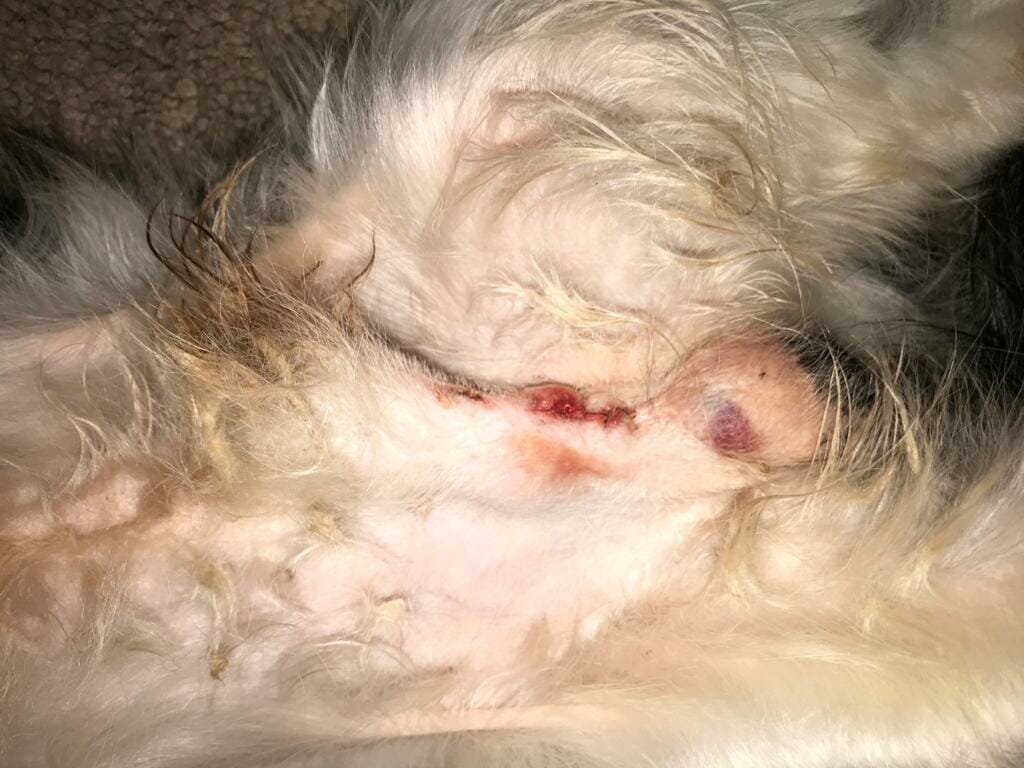
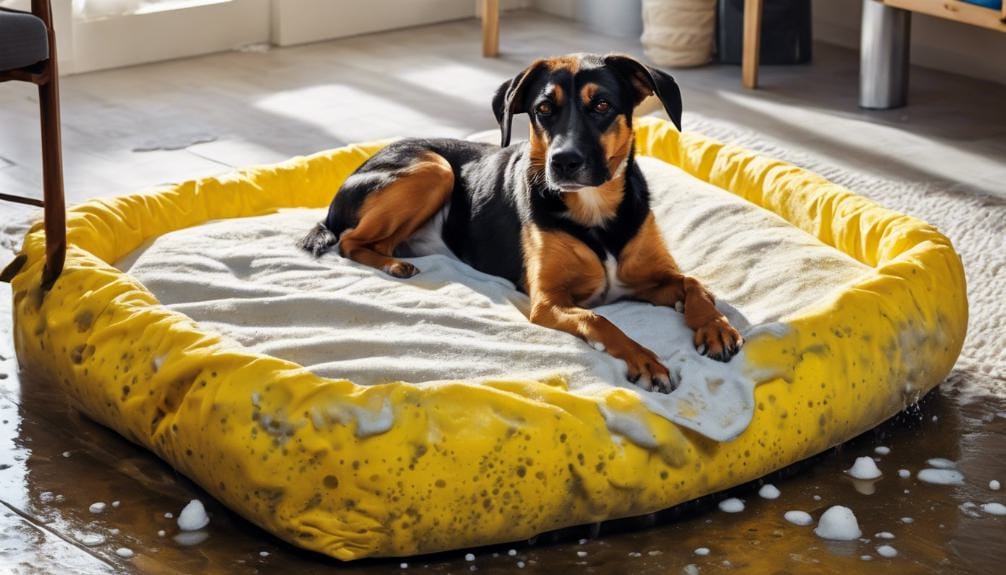
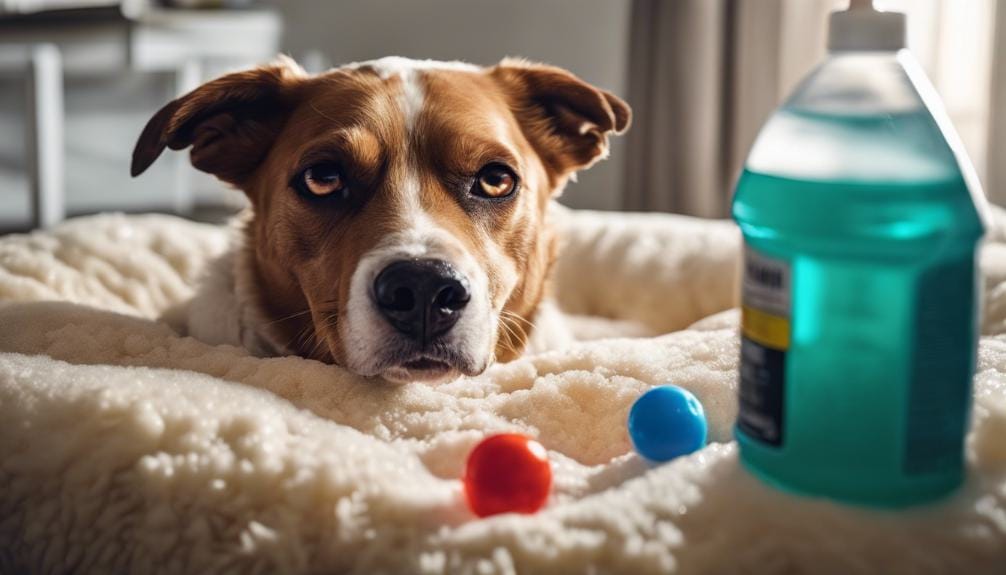
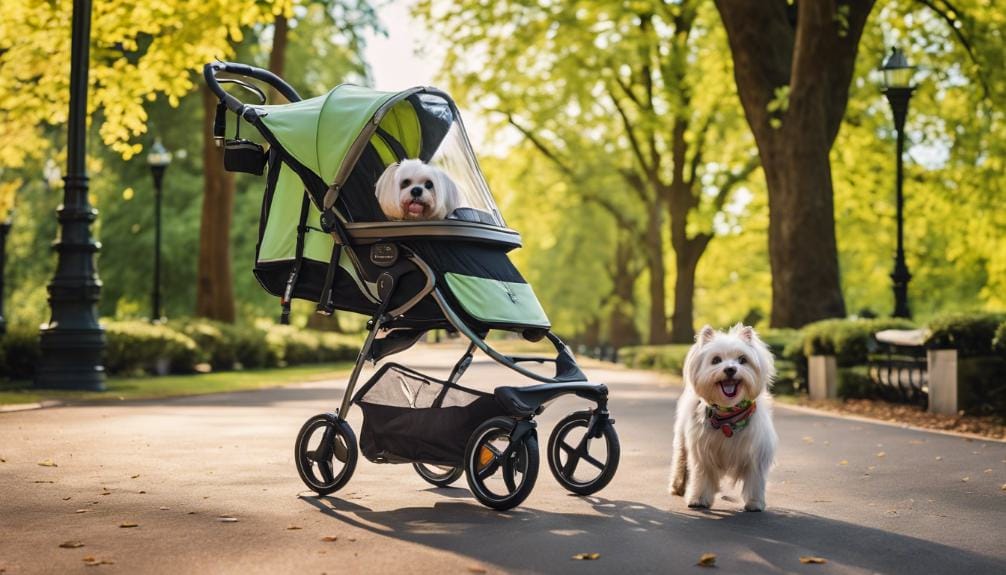
Leave a Reply
You must be logged in to post a comment.